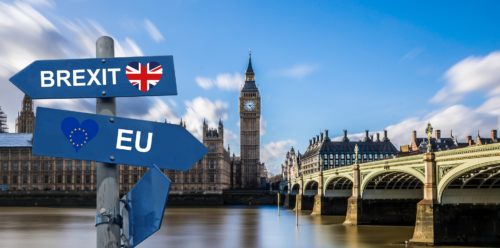Disunited Kingdom
Boris Johnson in the face of Brexit
Source: Pixabay
Boris Johnson has been Prime Minister for just over a week. Westminster insiders, and the public alike, are not particularly convinced that he will make a success of it. Johnson himself, however, has steamrolled forward, applying his traditional bluster to UK-EU relations.
The Conservative Party line is a ‘do or die’ Brexit: that come hell or high water, the UK will leave on the 31st of October even if that means a No Deal. The continuing stumbling block is the backstop: an agreement between the UK and EU that there would never be any physical checks between the Northern Ireland – Republic of Ireland border. Any re-establishment of checks would risk the peace settlement. If the backstop came into force, it would mean that there would be a UK-EU customs territory and Northern Ireland would have to remain in alignment with certain EU rules. Brexiteers disagree with remaining in an EU customs territory, as they wish to repatriate trade powers to the UK. Johnson has also referred to the Withdrawal Agreement as making the UK a ‘vassal state’, likely on the grounds that neither party can unilaterally put an end to the backstop.
Johnson has, therefore, asserted that ‘the backstop is dead’. As one of the Westminster insiders stated: “At some point his government is going to have to stop promising stuff and actually start doing stuff.” Many Brexiteer ministers have found their ideas to conflict sharply with reality once entering power: indeed, Johnson has already resigned from Cabinet once already. His insistence on removing the backstop will lead to his government falling foul of the same trilemma which May faced. The UK government – regardless of who leads it – can only have two of the following: leaving the Single Market and Customs Union, avoiding a hard border with Ireland, and the same approach to Brexit throughout the UK.
Johnson knows this. His aim is not actually to get a better deal, but instead to engineer a position where he can claim to have been rebuffed in his negotiation attempts by the EU and then push for a general election, where he can campaign for No Deal. The result of such an election would be unclear. One of Johnson’s three headline priorities for his premiership is to Defeat Jeremy Corbyn, the Leader of the Opposition and of the Labour Party. Corbyn is also deeply unpopular among the British public.
The problem both parties face is that UK politics is no longer split down left and right wing lines, but by Leave and Remain lines. Regardless of whether Johnson successfully acts on the economic imbalances in the UK that contributed to the Brexit vote, he still seeks to fight a culture war. As things stand, the two opposing camps are roughly the same size and just as powerful as the other, and have entirely different worldviews. Brexit no longer just means Brexit. It is a deeply personal response to the question of how society and politics should work in the modern era. Leave and Remain identities transcend the Brexit debate, and permeate the entirety of British politics and policy. Neither of the traditional two large parties can rely on winning a majority.
Johnson’s plan was always to be in the Prime Ministerial position, but not in this political position. In 2016, he likely believed the country would reject Brexit and he would be able to ride a wave of Leaver discontent into power. A similar phenomenon took place among disillusioned Scottish nationalists in 2015, as short-lived as it was. Assuming the country supports his No Deal plan, which is a big assumption considering that it is less popular among the public than remaining in the EU, he will have no time or resources to spare on any non-Brexit related policy. His legacy will be struggling to manage the shocks of No Deal. Nothing more and nothing less. Perhaps, then, as in 2016, he wants to lose: either for Brexit to be cancelled, or to be soft enough that he has enough material to retain power by whipping up populist sentiment among the Leaver segment of the population.
Johnson’s games lead to a serious risk of sleepwalking into a No Deal, with the accompanying serious impact for businesses and citizens. Even if that risk is avoided, Britain remains a bitterly divided country – almost to the point of becoming ungovernable.

